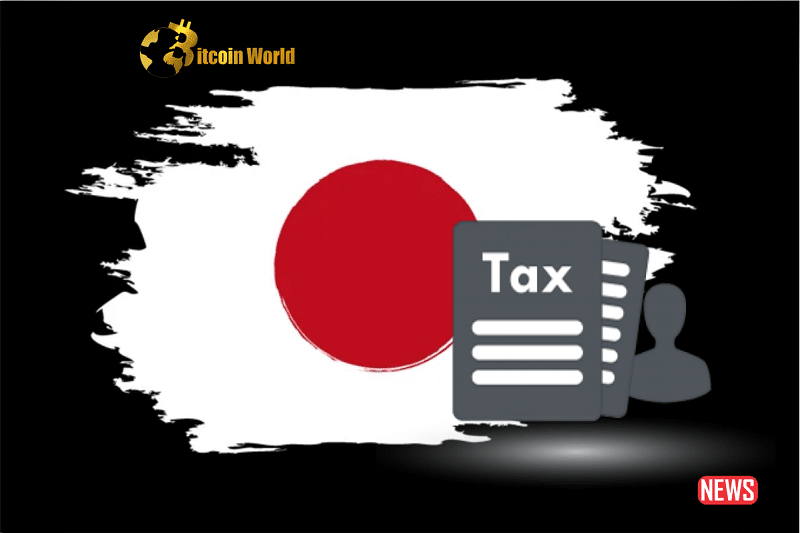Heads up, crypto enthusiasts! Japan is making waves in the digital asset space, and if you’re tracking global crypto developments, this is big news. Prime Minister Fumio Kishida’s vision of a ‘new capitalism’ is taking shape, and cryptocurrency and blockchain technology are playing a starring role. The latest development? A significant tax law revision that’s got crypto issuers buzzing. Let’s dive into what this means for the future of crypto in Japan.
A Game Changer for Crypto Issuers: No More Tax on Unrealized Gains
Imagine this: you’re a company issuing cryptocurrencies, constantly innovating and pushing the boundaries of blockchain. But there’s this nagging 30% corporate tax on unrealized gains hanging over your head. That’s the reality many crypto issuers in Japan faced until recently. But hold on, because the National Tax Agency just dropped a game-changer on June 20th!
What’s the big deal? Essentially, crypto issuers are now exempt from this hefty 30% corporate tax on profits they haven’t actually cashed in yet. Think of it as a weight lifted off their shoulders, allowing them to:
- Reinvest and Grow: More financial flexibility means more resources to pour back into development, expansion, and innovation.
- Attract Talent and Investment: A more favorable tax environment makes Japan a more attractive destination for blockchain businesses and talent.
- Fuel the Blockchain Ecosystem: This move is a clear signal that Japan is serious about fostering a thriving blockchain sector.
But What About Crypto Investors? The Income Tax Reality
Now, before individual crypto investors start celebrating a tax holiday, let’s clarify the picture. While issuers are getting a break, individual investors in Japan are still subject to income tax on their crypto earnings. Here’s the breakdown:
- Miscellaneous Income: Crypto gains are classified as ‘miscellaneous income.’
- Tax Rate: If your crypto earnings exceed 200,000 Japanese yen, you’re looking at a maximum income tax rate of 55%.
So, while the tax burden on issuers is easing, individual investors still need to factor in these tax implications when navigating the crypto market in Japan.
Pushing for Progress: Calls to Relax Margin Trading Limits
The crypto industry in Japan isn’t resting on its laurels. The Japan Virtual & Crypto Assets Exchange Association (JVCEA), the leading voice for the industry, is actively advocating for further improvements. One key request? Relaxing the current limits on crypto margin trading.
Why is this important?
- Increased Trading Activity: Easing restrictions could encourage more participation in the crypto market.
- Enhanced Market Liquidity: Higher trading volumes can lead to a more liquid and efficient market.
- Global Competitiveness: Adjusting these limits could help Japan stay competitive with other crypto-friendly nations.
Big Banks Getting Involved: MUFG’s Stablecoin Exploration
Here’s another sign that Japan’s crypto scene is maturing: major financial institutions are stepping into the arena. Mitsubishi UFJ Financial Group Inc. (MUFG), Japan’s largest bank, is reportedly exploring the issuance of stablecoins in collaboration with global crypto players.
Why is MUFG’s move significant?
- Mainstream Adoption: The involvement of traditional finance giants lends credibility to the crypto space.
- Innovation in Payments: Stablecoins offer the potential for faster and more efficient payment systems.
- Progmat Coin Platform: MUFG’s existing blockchain platform allows local banks to launch their own stablecoins and digital assets, showcasing their commitment to this technology.
Japan’s Crypto Landscape: A Look at the Key Developments
Let’s recap the key takeaways in a clear, concise format:
| Development | Impact |
|---|---|
| Exemption of crypto issuers from 30% corporate tax on unrealized gains | Boosts financial flexibility for issuers, encourages growth and innovation in the blockchain sector. |
| Maximum 55% income tax on crypto earnings above 200,000 JPY for investors | Ensures tax revenue from individual crypto gains. |
| JVCEA’s push to relax margin trading limits | Aims to create a more favorable trading environment and increase market participation. |
| MUFG’s exploration of stablecoin issuance | Signifies growing interest from traditional financial institutions and potential for wider adoption of digital assets. |
What Does This Mean for the Future?
Japan’s recent moves paint a picture of a nation actively embracing the potential of blockchain and cryptocurrency. Prime Minister Kishida’s vision of ‘new capitalism’ is clearly incorporating digital finance as a key pillar. While challenges remain, particularly for individual investors navigating the tax landscape, the overall trajectory is positive. The government’s willingness to adapt tax laws and the proactive engagement of industry players suggest a commitment to fostering a thriving digital economy. Keep an eye on Japan – it’s shaping up to be a major player in the global crypto revolution.
Disclaimer: The information provided is not trading advice, Bitcoinworld.co.in holds no liability for any investments made based on the information provided on this page. We strongly recommend independent research and/or consultation with a qualified professional before making any investment decisions.




